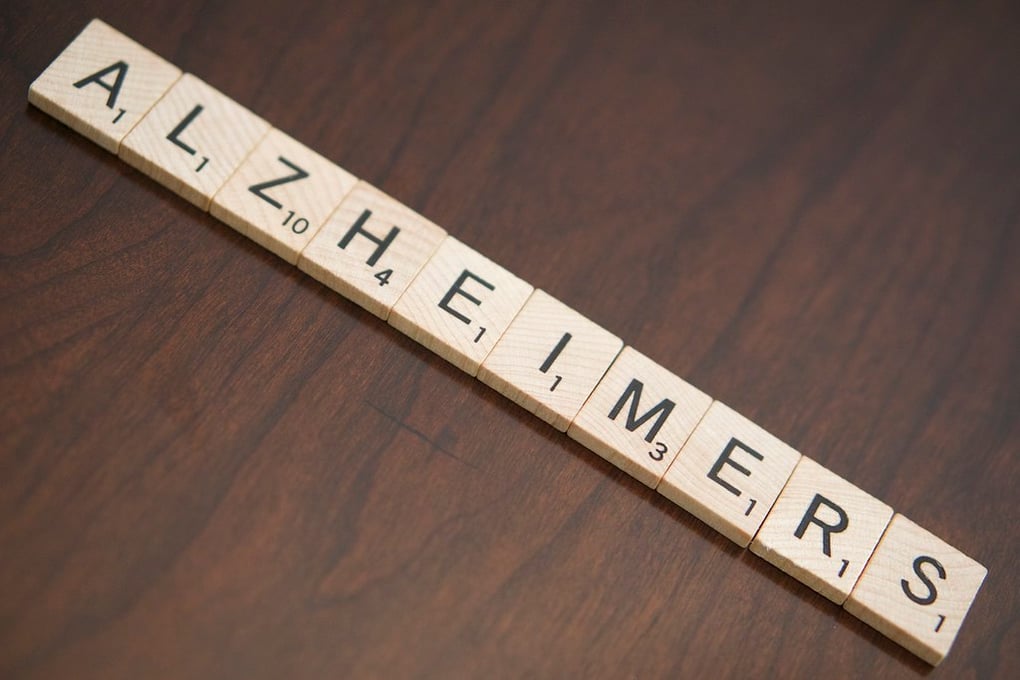For the short period that she lived with us, my grandmother attended every one of my soccer games. At team dinners, all the girls wanted to take pictures with Mimi, calling her our favorite good luck charm. She was hearty, attending even the coldest of games, and easily spotted with her layers of blankets, many of which were donated by eager soccer moms.
What most of my team members didn’t know was that my grandmother was fighting a battle much greater than the cold breezes of Pittsburgh. In July of 2012, just three weeks before my grandfather, her husband of 50 years, passed away, my grandmother was diagnosed with Alzheimer’s. My junior year soccer season was the last time my grandmother lived with my family before she moved to Texas and into a memory care facility near two of my aunts and their families.
What is profound about Alzheimer’s is that it affects the whole family. All of us are at risk for this disease for which there is no cure. In response to this reality, our family has made lifestyle changes to lower our risk. One of the most influential strategies for me was to cut gluten out of my diet.
The Book That Changed It All
Just shortly after my grandmother’s initial diagnosis, my mother read Dr. David Perlmutter’s Grain Brain, a study that reveals the degrading effect that carbohydrates have on brain function, including their link to dementia, Alzheimer’s, ADHD, and more. Because of this, Perlmutter recommends a gluten-free diet, something that my mom and I decided to adopt immediately.
Contrary to popular belief, going gluten-free isn’t always a fast track to weight loss. Many people still seek out gluten-free alternatives to their favorite cookies, cakes, and indulgences, preventing such a change. Primary users of the gluten-free diet are those suffering from celiac disease (where gluten causes inflammation of the intestines) or those who have non-celiac gluten sensitivity. Because of this, the endless supply of alternatives isn’t necessarily healthier, but can help victims of Celiac to still enjoy their favorite, otherwise glutinous, foods.
Transitioning to a Gluten-Free Lifestyle
For me, the overall shift to gluten-free was a big change. I could no longer indulge in my favorite pizza with friends, nor could I sample the delicious-looking bread served at restaurants while waiting for my entrée to be served. Birthday cakes, my favorite chocolate chip cookies, and even my soccer team’s favorite chicken Parmesan were no longer options for me. I learned that even some French fries, soups, salad dressings, and potato chips contain gluten.
Whenever I really crave pasta, I substitute a rice or corn-based noodle, or even dine at restaurants with gluten-free bread products. I quickly derived new energy in my transition to consuming healthier alternatives: fruits, vegetables, and beans. Of course, splurging on frozen yogurt or ice cream is always still an option.
After a year or so, I took a break from my diet and that was NOT a good idea. I experienced indigestion, stomachaches, and even feverish symptoms. Even though I didn’t have celiac disease, my body was processing something that it hadn’t been exposed to in a while.
After that brief hiatus, I have gone back to being gluten-free, not just in solidarity to my family, but also to keep myself on a track I knew was so good for me. I invested more time reading Dr. Perlmutter’s additional research on brain function, and other factors that contribute to dementia and Alzheimer’s.
Perlmutter observed the benefits of exercise, so I have adopted a more active lifestyle in addition to my diet, which has helped me to feel more awake in the mornings, and more alert in general. I have even seen improvement in my time management and study habits.
It’s crazy to think that something I originally did in solidarity with my grandmother would alter so many aspects of my life. I’ve become a follower of Dr. Perlmutter, a Board-Certified Neurologist whose obsession with nutrition and its effects on brain function has inspired me to adopt a new consideration of what I consume, and how I take care of myself.
Thankfully…

My grandmother is still a powerhouse today. Although the disease has robbed her of her short-term memory and ability to do some things for herself, she retains her wit, her love for me, her laughter at my jokes… and she still manages to beat me in our favorite card game.
It is painful to watch her memory worsen with each visit to see her especially knowing there is no cure. In response, however, I know I will continue to love on her, even when she doesn’t recognize me anymore. In honor of the two of us, I am committed to staying gluten-free and addicted to refreshing Dr. Perlmutter’s blogs daily in effort to improve my own brain health. Perhaps you would like to join me.


